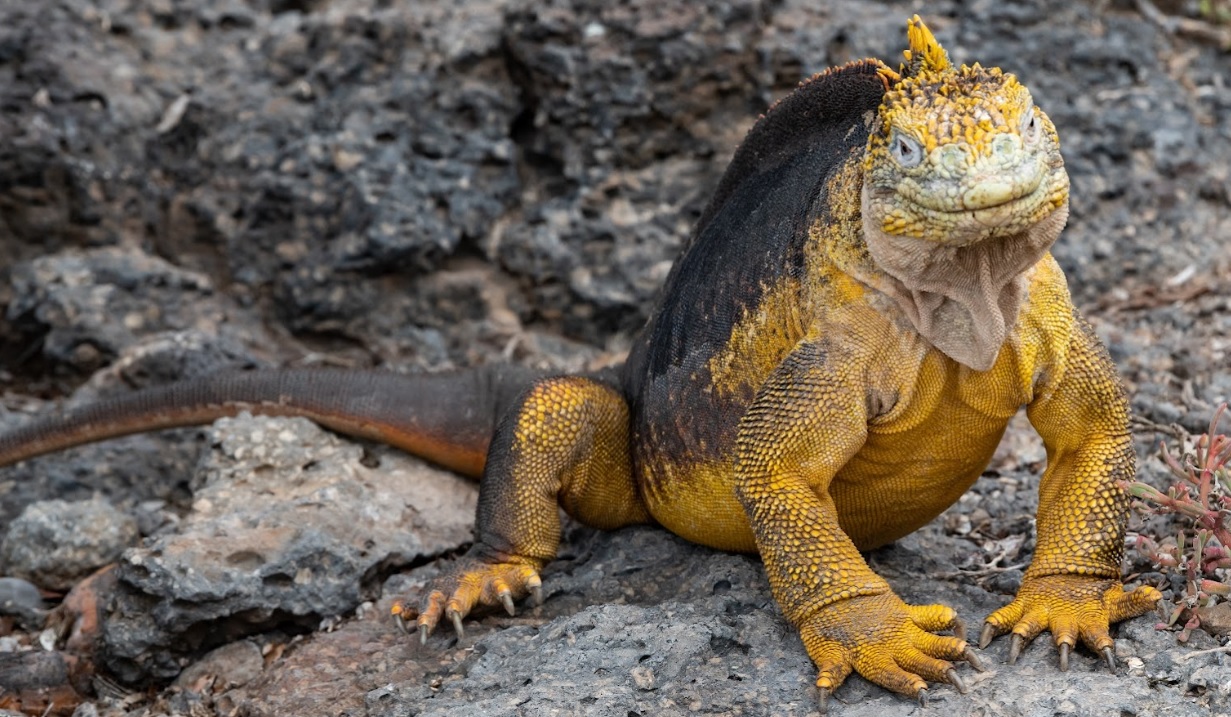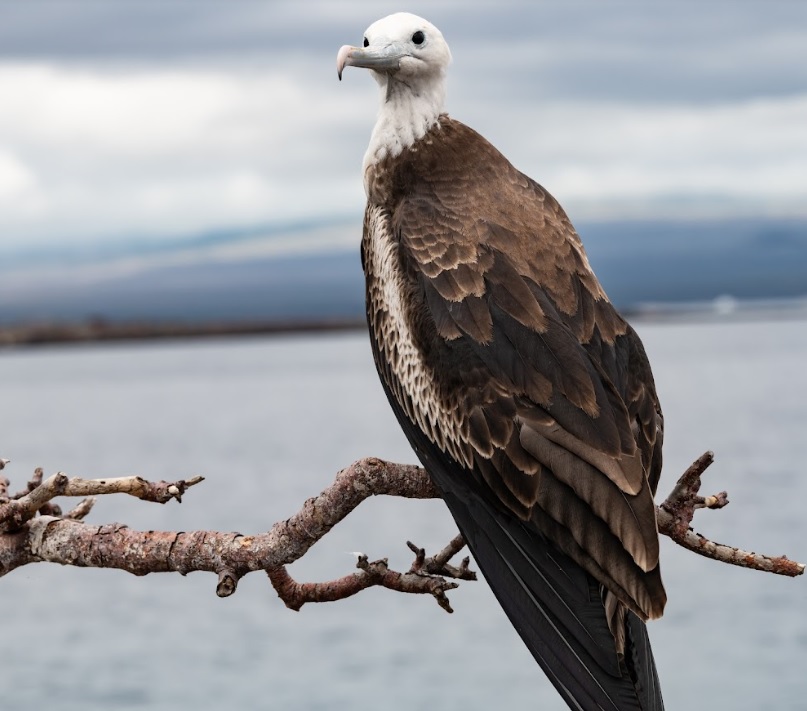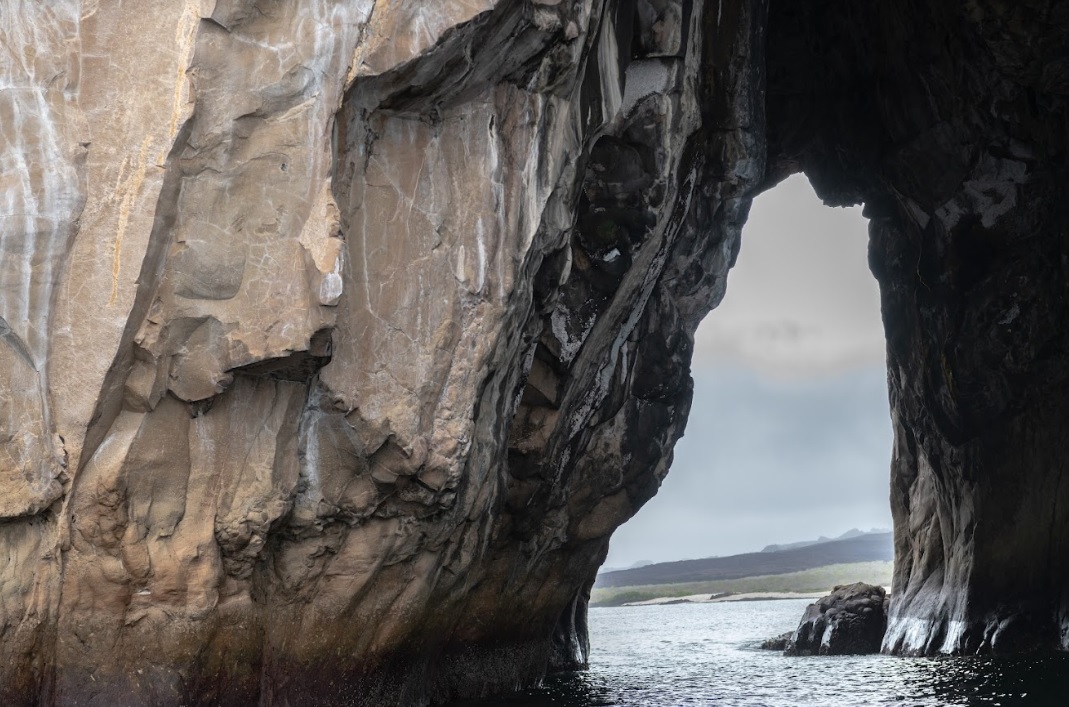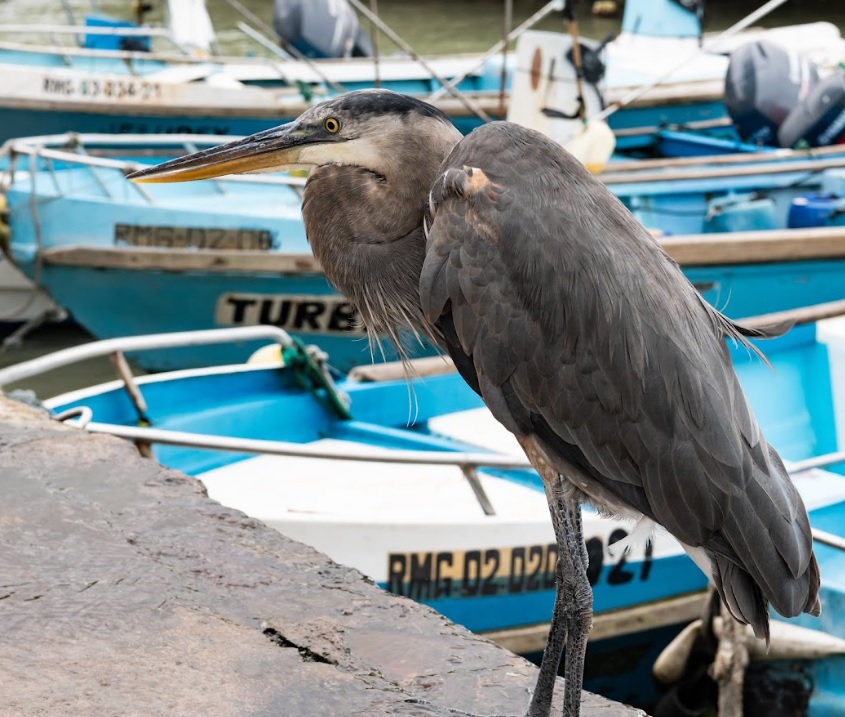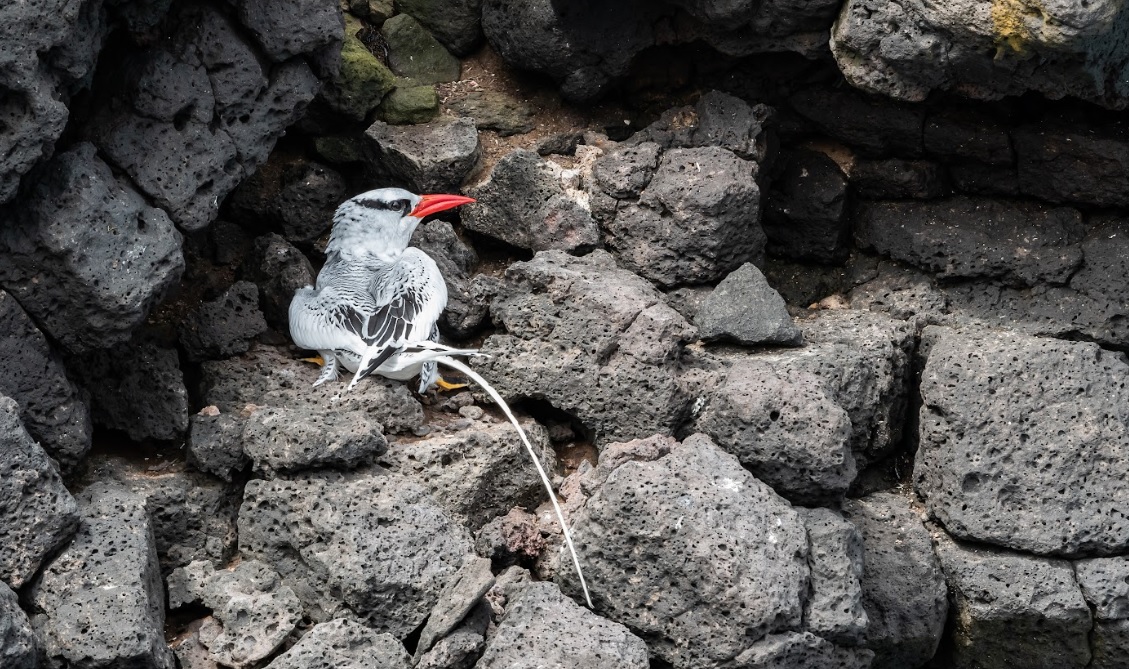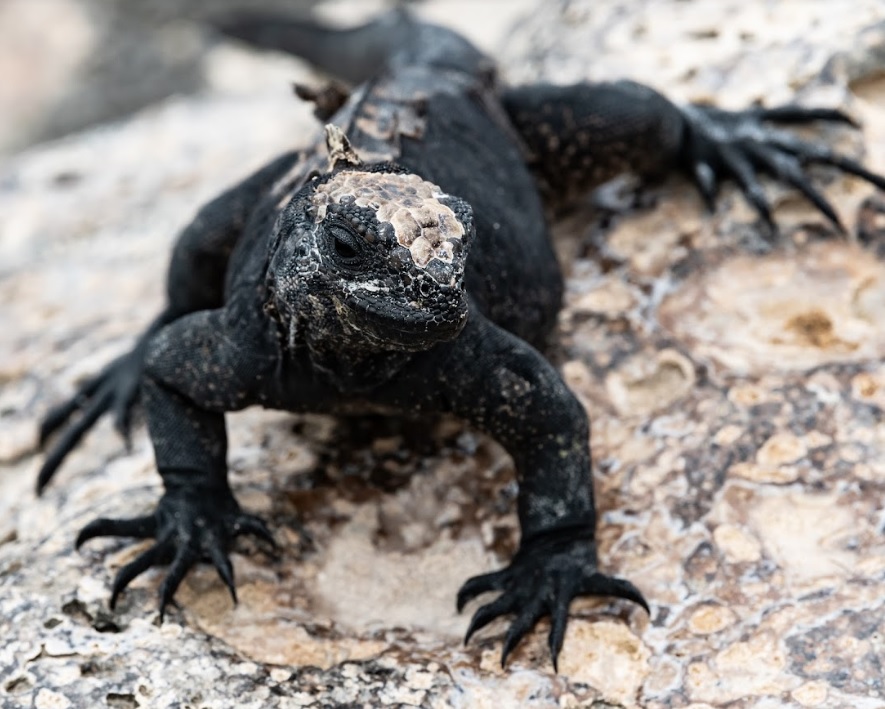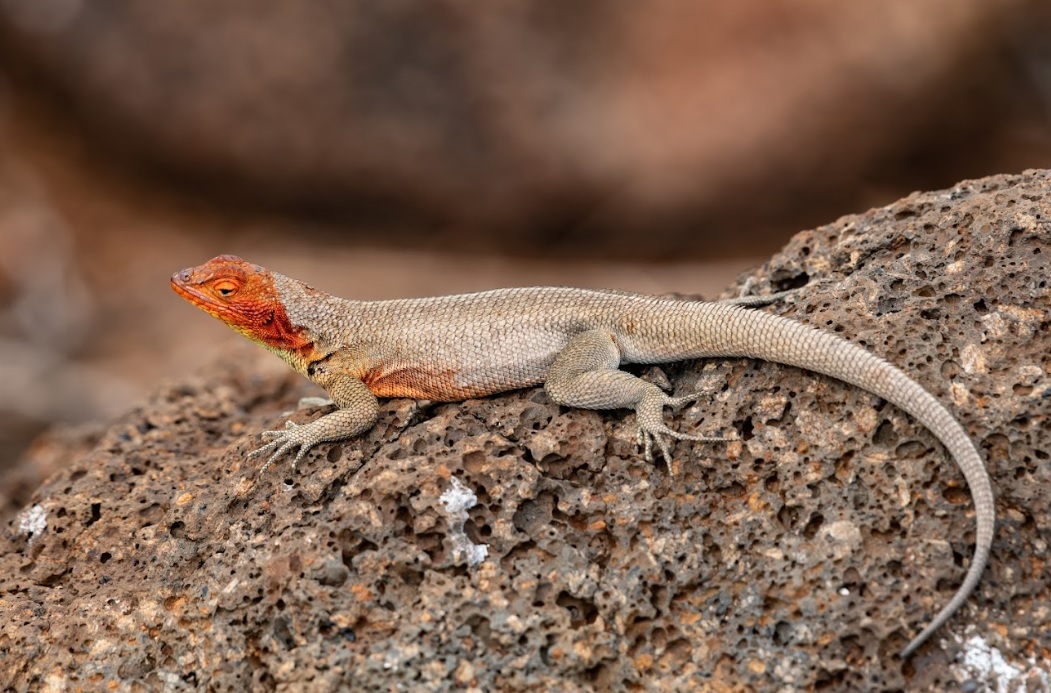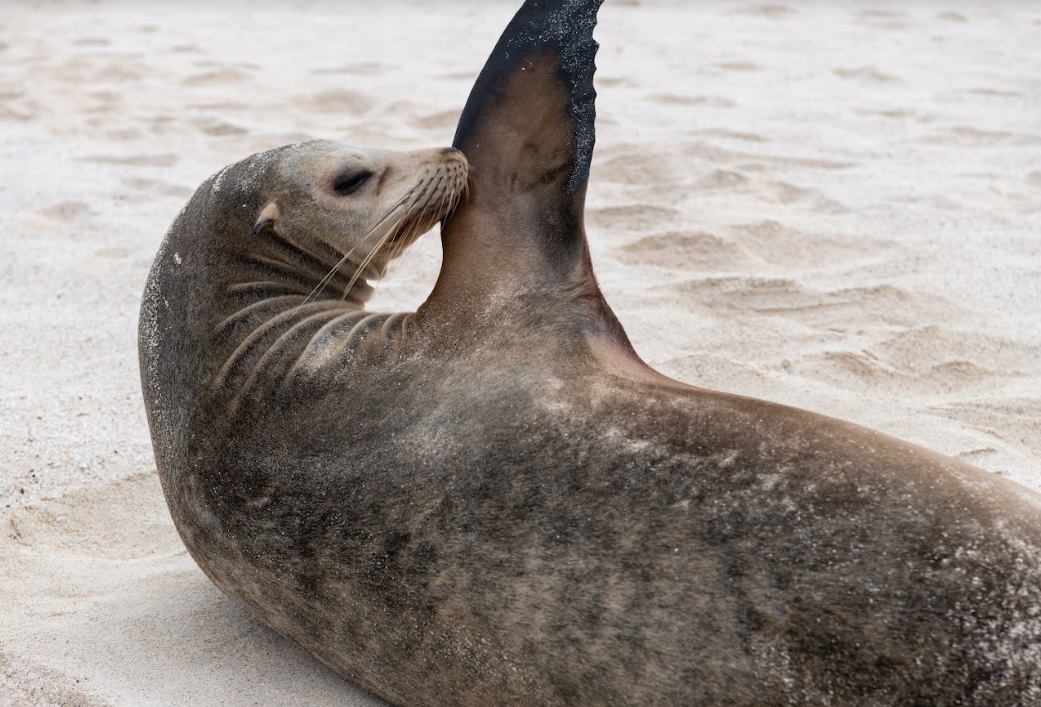The Galapagos Working Group
About
The Galapagos Science Center (GSC) was founded in 2011 as a hub for scientific research projects to benefit the Galapagos and the world of science. The GSC is the first and only academic research center on the Galapagos archipelago. In response to opportunities offered by the GSC, a working group of NC State faculty interested in Galapagos research, sustainability, training and education formed to pursue projects of interest on the Islands.
Members of the Galapagos Working Group are based in seven NC State colleges, and focused on preserving the Galapagos Islands for future generations as well as sustaining their inhabitants. Working Group members bring expertise in animal health, tourism, sustainable farming, coastal resilience, rodent, insect and microbial infestations, ecology, marine science, STEM education, and geology.
This web page will feature key NC State efforts on the Galapagos Islands as well as news items of relevance. A quarterly newsletter will be distributed to any NC State faculty, staff, and students who would like to join the working group and receive important updates.
NC State Joins the International Galapagos Science Consortium
On June 26, 2022, NC State became a formal member of the International Galapagos Science Consortium (IGSC).
The IGSC is a network of collaborating institutions and scientists with the shared goal of studying and preserving island ecosystems. NC State’s membership will allow faculty, staff, and students to take full advantage of the Galapagos Science Center’s resources and dedicated personnel.
Research Spotlight: Dr. Sarah Rhea
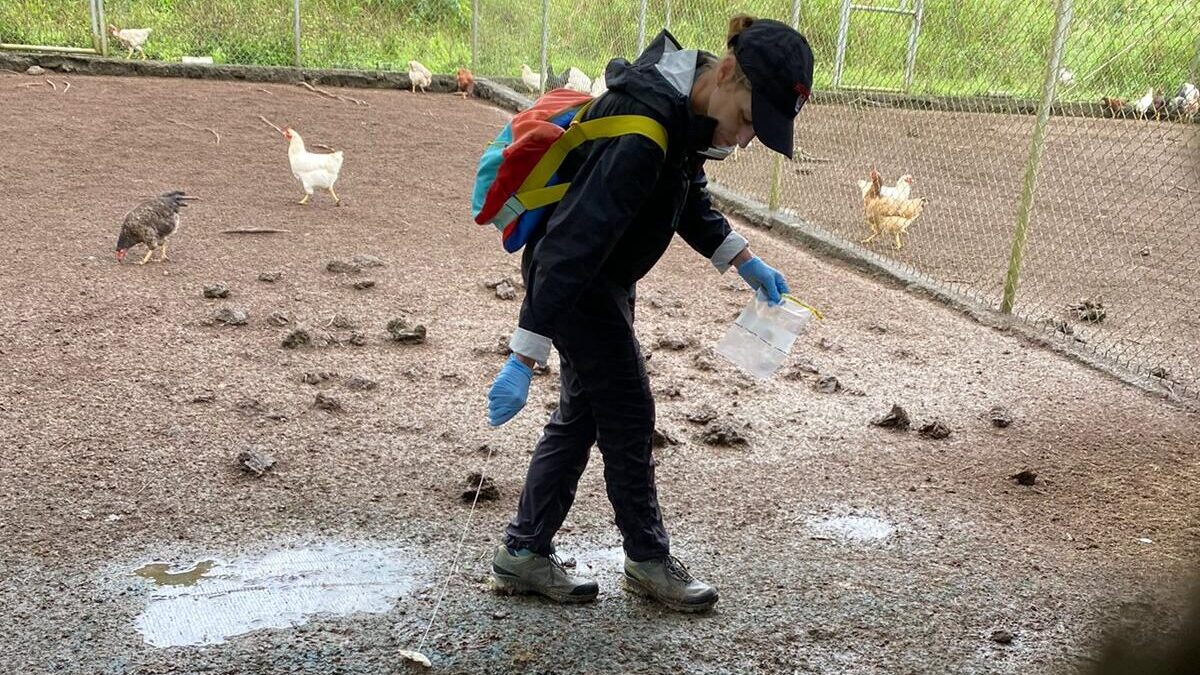
Dr. Sarah Rhea earned her DVM from Purdue University and then worked in small animal community practice in Indiana before obtained her MPH and PhD in Epidemiology from the University of North Carolina at Chapel Hill. Following her graduate training, Dr. Rhea served as an Epidemic Intelligence Service Officer with the Centers for Disease Control and Prevention (CDC). She subsequently completed CDC’s Preventive Medicine Residency/Fellowship program. Dr. Rhea joined RTI International, in 2016 where she rose to Senior Research Epidemiologist, and joined NC State as an Assistant Professor in 2021. Dr. Rhea’s research interests encompass multiple areas of infectious disease epidemiology in human and animal populations, including antimicrobial resistance, healthcare-associated infections, disease surveillance, and emerging and zoonotic pathogens. Most recently, she has used disease transmission models to evaluate antimicrobial stewardship interventions for Clostridioides difficile infection prevention and to predict COVID-19’s impact on healthcare resources under various public health planning scenarios. Dr. Rhea applies traditional epidemiologic methods and disease modeling to address real-world challenges in global health and clinical practice using a One Health approach.
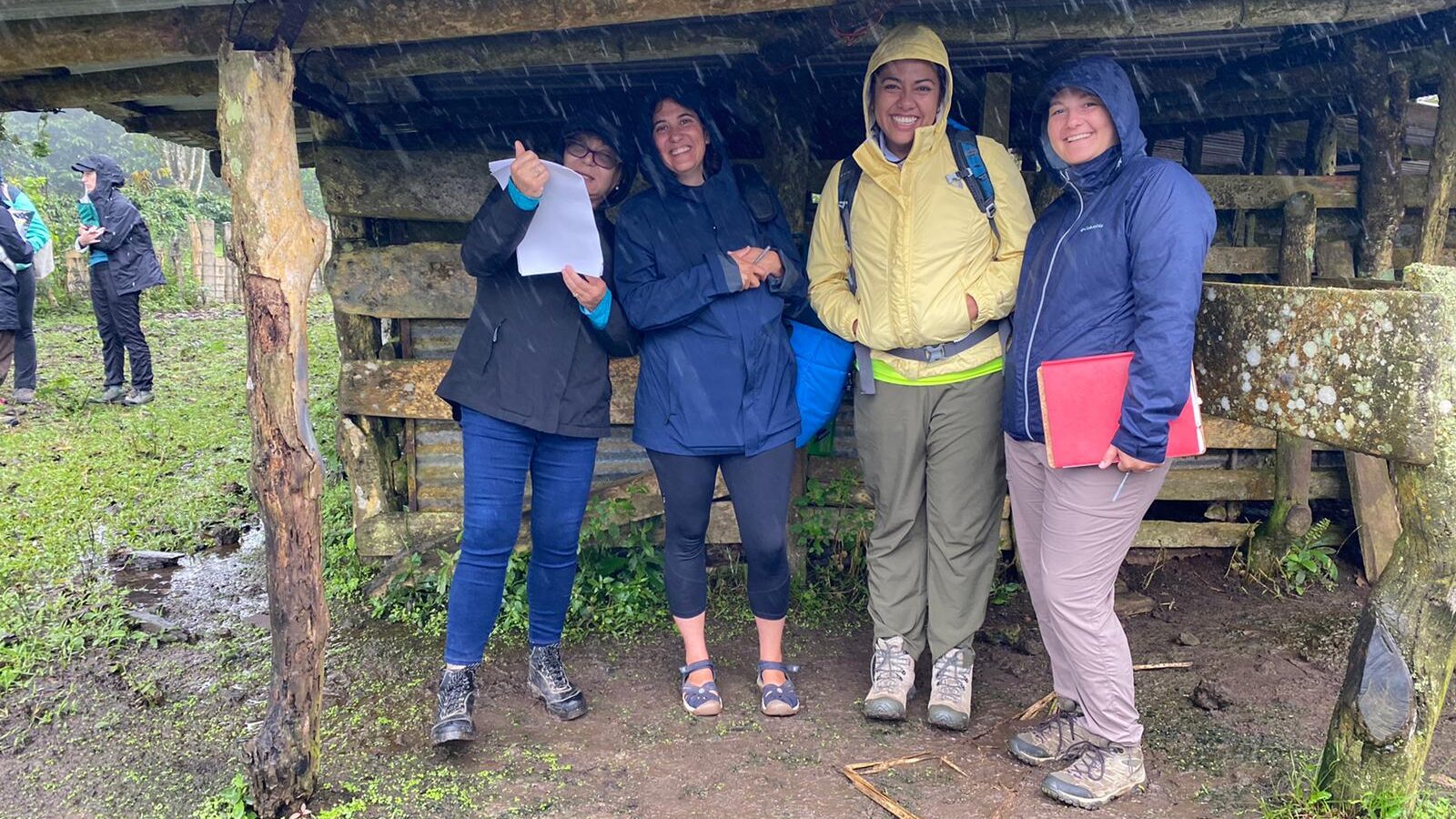
Dr. Rhea received a College of Veterinary Medicine (CVM) Global Health research grant in 2022 to assess animal producer knowledge, attitudes, and practices, and presence of antimicrobial resistance (AMR) on farms and surrounding environs on the Galapagos Islands. Collaborators on this project include CVM colleagues, researchers at UNC-CH, the Universidad San Francisco de Quito (USFQ), and the UNC-USFQ Galapagos Science Center, as well as the Agencia de Regulación y Control de la Bioseguridad y Cuarentena para Galapagos, Parque Nacional Galapagos, Agencia de Regulación y Control Fito y Zoosanitario de Ecuador, and the Inter-American Institute for Cooperation on Agriculture.
Utilizing assessment standards from multiple US and international sources and following in-depth interviews with eight participating producers, Dr. Rhea and her team identified opportunities to enhance competencies in animal health management, including farm biosecurity, access to veterinary care, and AR surveillance, and in timely euthanasia on Floreana farms. Of the 227 animal fecal samples collected, Extended-Spectrum Beta-Lactamases Producing Escherichia coli (ESBL-EC) was isolated from 20 (9%) samples from pigs, chickens, wildlife, and a dog. All ESBL-EC isolates were from samples taken at three (38%) of the eight farms. Fifteen (75%) of the ESBL-EC isolates were from a single farm. All ESBL-EC isolates were multidrug resistant. Among the typeable isolates from the farm with 75% of ESBL-EC isolates, the team observed nine unique bacterial strain (pulsed field gel electrophoresis) patterns, with identical patterns present across pig and chicken isolates; pigs and chickens routinely interacted at this farm during our site visit. Co-location of animal species can result in direct interspecies contact, through shared land and water points, or indirect interspecies contact, through vectors (e.g., birds, wind). Strain patterns in the three farms with ESBL-EC isolates were different.
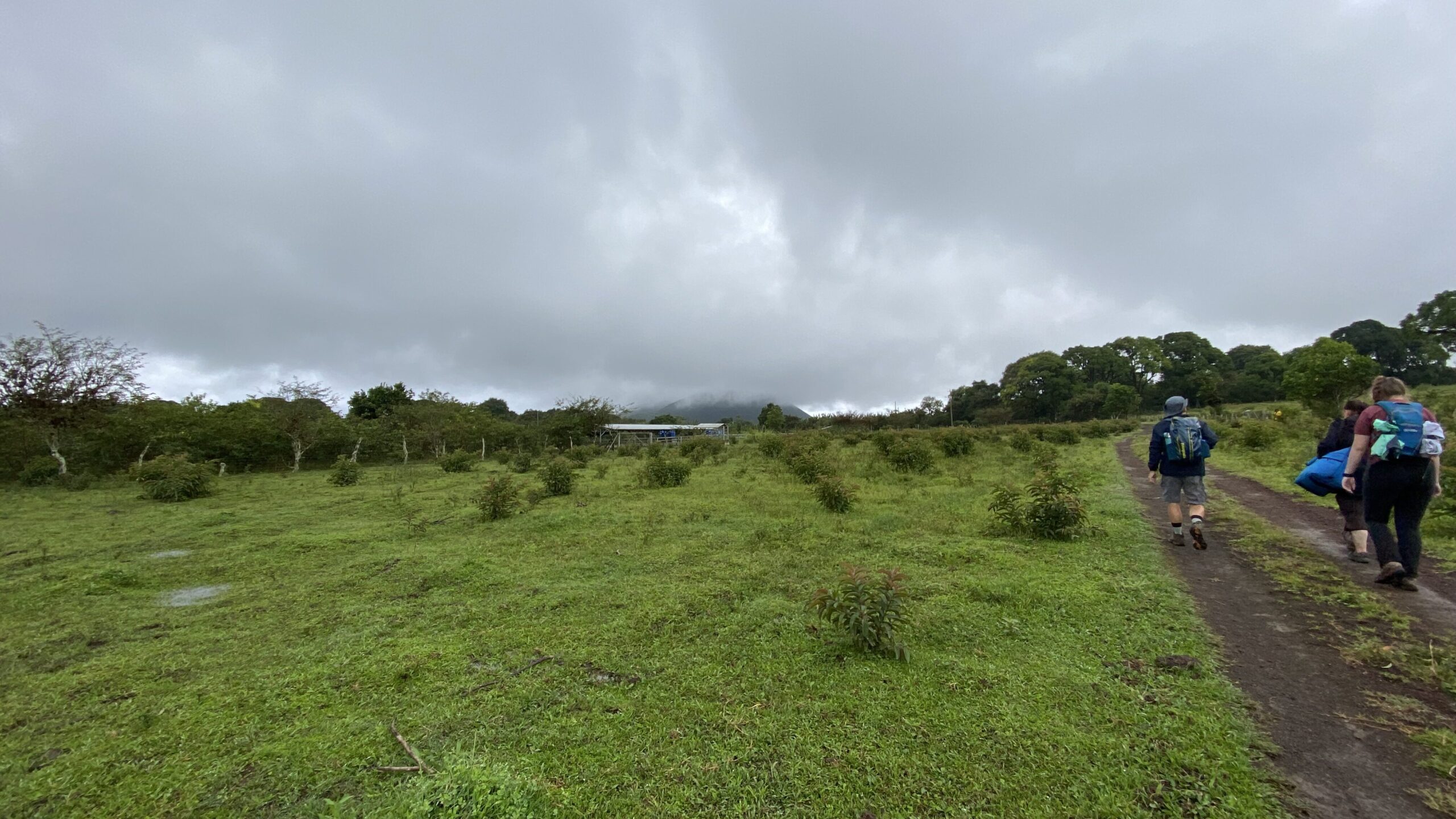
These results lend support for routine AR monitoring at the food animal-wildlife interface in Galapagos. Such monitoring could help characterize potential interspecies transmission of AR bacteria and AR genes in this unique protected ecosystem, and the related human, animal, and environmental health impacts. Results could inform interventions to reduce AR spread in this setting. In Summer 2023, we will return to Floreana, deliver project results to the producers, and discuss opportunities to collaborate with producers and Ecuadorian partners to help strengthen capacities in the areas of farm biosecurity, access to veterinary care, AR surveillance, and on-farm euthanasia methods. Efforts to positively impact small-scale farm livelihoods in Galapagos will sustainably support human health through the interconnected realms of animal health and welfare, wildlife and environmental health, and food safety and security.
For more information about Dr. Rhea and her background, teaching, research and service, please visit here.
New Galapagos Funded Projects
Marcelo Ardon and Alonso Ramirez
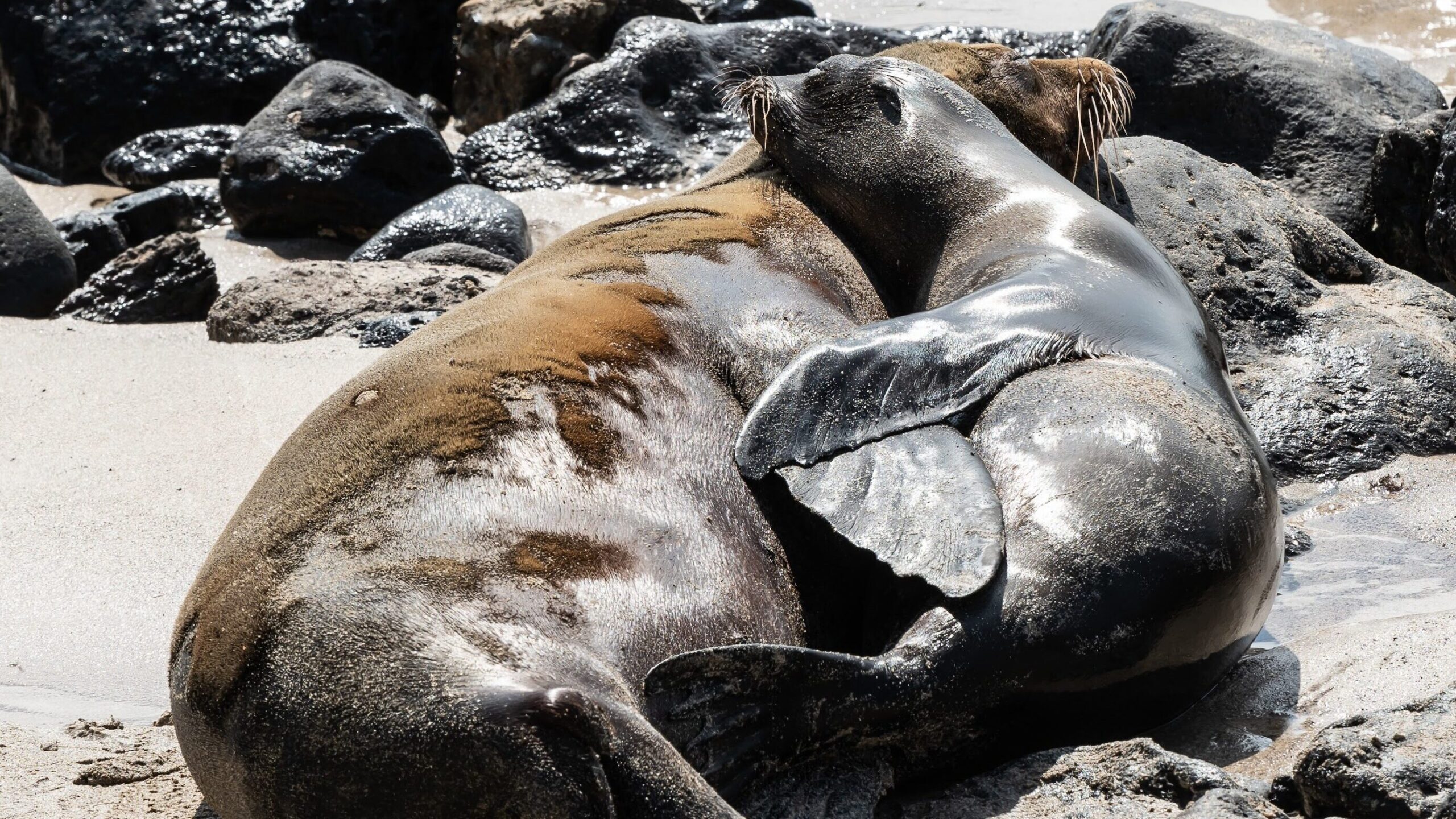
Marcelo Ardon (CNR) and Alonso Ramirez (CALS) received funding from NC State’s Research and Innovation Seed Funding (RISF) Program for a project entitled “Hydroclimatic Change and the Structure and Function of Streams in the Galapagos Archipelago”. Water availability is critical for people and ecosystems, and climate change will alter water availability by changing the delivery of rainfall.
Despite much research in how precipitation will alter water availability for ecosystems in temperate areas, tropical areas have not received as much attention. Small tropical islands are particularly vulnerable, because surface water is one of the principal sources of drinking water. We are proposing to use existing hydrologic gradients in the Galapagos Archipelago to study how changes in precipitation will alter the structure and function of tropical streams. Leveraging gradients in precipitation amount and seasonality due to elevation and location in the Galapagos, we will measure how stream structure (discharge, and water quality) and function (macroinvertebrate assemblages) vary in order to forecast how tropical streams will respond to predicted changes in hydrologic regimes. We will study perennial (flowing year around) and non-perennial streams in San Cristobal Island in the Galapagos.
This interdisciplinary project with NC State and UNC Chapel Hill will take advantage of the Galapagos Science Center to collect preliminary data. Data collected from this project will be used to write a grant to the National Science Foundation Ecosystems program.
David Eggleston and Del Bohnenstiehl
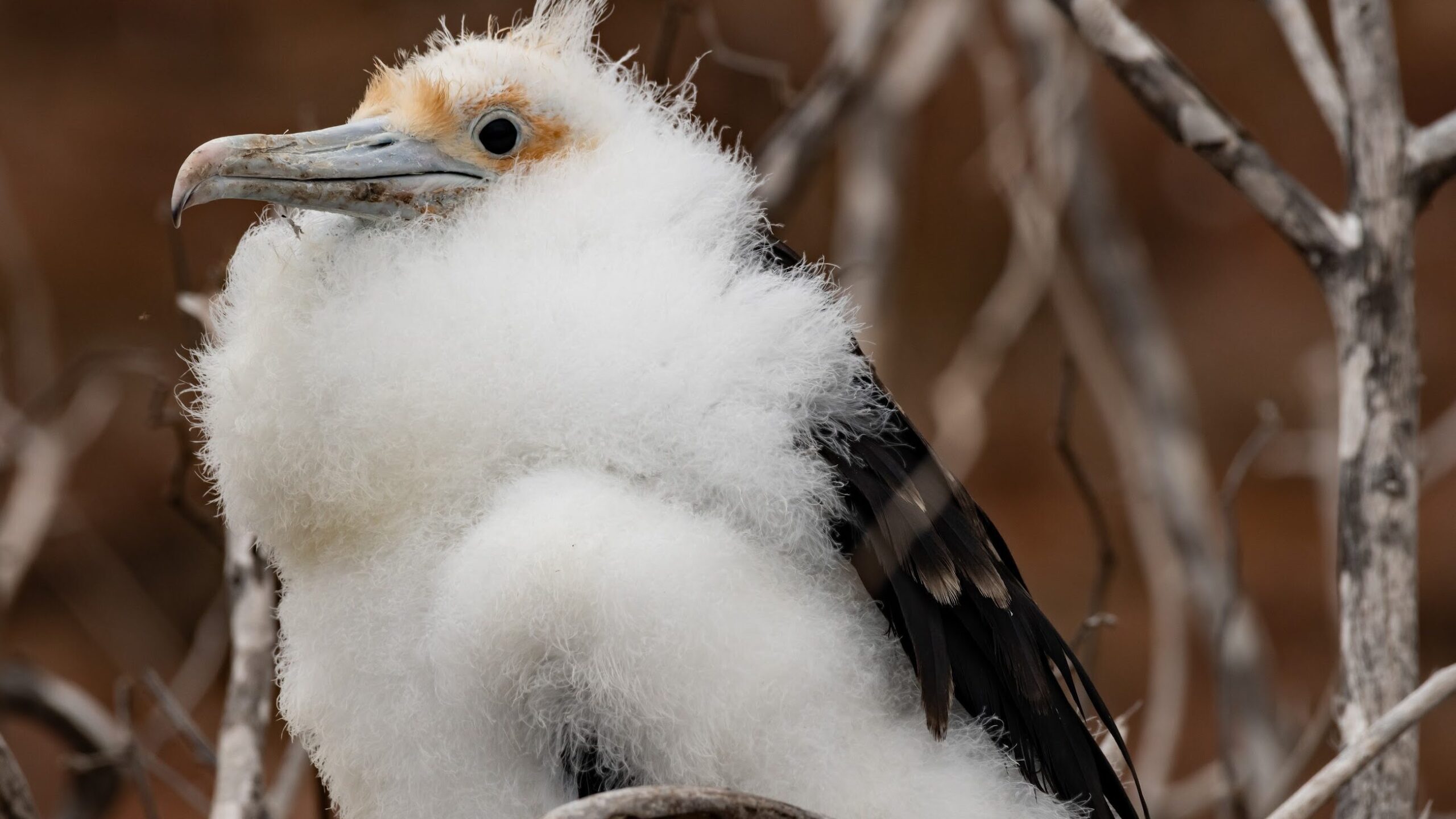
David Eggleston (MEAS) and Del Bohnenstiehl (MEAS) received funding from NC State’s Research and Innovation Seed Funding (RISF) Program for a project entitled “Using the Underwater Soundscape to Assess the Interacting Effects of Climate Change, Ocean Management, and Biodiversity”. The overarching goal of this project is to conduct conservation research that investigates the interacting effects of climate change, ocean management in the form of marine protected areas (MPAs), and biodiversity that will contribute to evidence-based solutions to advance biodiversity conservation.
We propose using the Galapagos Islands to address this goal and will collaborate with a research and outreach program based at the Galapagos Science Center and the University of San Francisco, Quito, Ecuador to generate pilot data that can be used to support long-term research and outreach program. The Galapagos Islands are a global hotspot of environmental change, and NC State recently joined the Galapagos Science Center to facilitate high-impact research, education, and extension activities. Marine ecosystems and species are facing critical stresses and threats due to increased emissions from human activities. MPAs, although not immune to climate impacts, provide areas of reduced stress on ecosystems and species, allowing for the restoration and maintenance of natural processes that mitigate climate impacts and provide ecosystem services. Little is known about how marine protected areas can protect biodiversity and ecosystem resilience in the face of increasing climate change and direct human pressures such as increasing tourism and fishing pressure.
The proposed research will explore the development of novel metrics for monitoring important ecosystem responses to climate change and ocean management using passive and active underwater acoustics and MPAs. This work will also advance our fundamental understanding of how marine fish and invertebrates respond to anthropogenic sounds.
Hot Off The Press!
Macroplastic Pollution Across the Galapagos Archipelago
An international team of investigators, including researchers from NC State and UNC-CH, report the first comprehensive assessment of plastic pollution distribution, composition, source, and impact on animals within the Galapagos archipelago.
Assessing Livestock Production Practices on Galapagos Islands
An international team of investigators, including researchers from NC State and UNC-CH, report the first assessment of production animal welfare (poultry, pigs, and cattle) on Floreana Island.
News from the UNC Center for Galapagos Studies
The UNC Center for Galapagos Studies (CGS) administrates the joint UNC/USFQ Galapagos Science Center, located on San Cristobal Island. Recent news from the CGS will be shared here for the NC State community to view.
Preserving the Galapagos One Sample at a Time
Researchers at the Galapagos Science Center are creating a biobank of samples to help with the preservation of the archipelago and provide new opportunities for study.
In the Field with Carolina Researchers
Carolina researchers are conducting studies on the Galapagos Islands to better understand global issues, such as climate change and freshwater security.
UNC and USFQ Research Team Receives NSF Grant
Dr. John Bruno of UNC and Dr. Margarita Brandt of USFQ are partnering on a three year, one million dollar grant from the National Science Foundation to understand the effect that temperature has on patterns and processes in upwelling systems.

